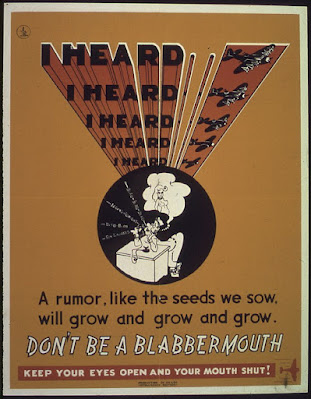A New Perspective: Calling in versus Calling out
Having a Conversation
Besides the other problems with cancel culture, it is also very aggressive, fragile, and sometimes even dangerous. Loretta J. Ross is an activist who according to her website, she “speaks, trains, consults, and lectures on many issues including reproductive justice, appropriate whiteness, human rights, violence against women, and calling in the calling out culture.” Recently, she did a Ted Talk about her new perspective of “calling in instead of calling out.” Essentially, the main point of her Ted Talk is to consider calling someone in, instead of out. What calling in means is inviting this person to have a conversation with you, instead of calling them out for something they said or did. Strive to understand there perspective and engage in a conversation where progress can be made and sides can be shared.
Opinions Change
According to Ross, she is someone who would sometimes attend KKK rallies because it was her job to monitor hate groups and she wanted to have a greater understanding of them. At first, she claims that it was hard for her to learn that if we are asking people to change, than we need to be there for them when they do. She would often work with people leaving these hate groups and after she worked with them, she couldn't hate them anymore. Despite the fact that these people were part of a hate group in the past, she was able to understand there opinion change and forgive. This is the other big part of cancel culture that is often left out: opinions change.
A few years back, a picture surfaced of the prime minister of Canada, Justin Trudeau, wearing black face. Now once again, it is completely unacceptable in this day and age to do something like that and some people were definitely outraged. But it is important to look at the context of this situation because it was something that he had done around twenty years ago. The fact that it happened 20 years ago doesn't make it acceptable, but it provides an understanding of why he might have chosen to dress up in the manner that he did. According to Time Magazine, Trudeau took accountability and apologized numerous times for the entire thing. He recognized that it was something that was racist, he was very regretful and knew he should have known better at the time. People's opinions and views change throughout the years, and a big part of calling in culture is to incorporate this. It is important that they recognize the mistake that they made but people's actions from a long time ago do not represent how they currently think about that situation. Finally, people make mistakes. Trudeau fully owned up to his mistake, apologized for it, learned from it, and of course is something that he won't let happen again. But for some, that isn't good enough. The reason is because these people are not yet ready to forgive.
Work Cited
Kambhampaty, Anna Purna, et al. “Photo Shows Justin Trudeau in Brownface at 'Arabian Nights' Party.” Time, Time, 19 Sept. 2019, https://time.com/5680759/justin-trudeau-brownface-photo/.
“Loretta J. Ross.” LORETTA J. ROSS, https://lorettajross.com/.
TEDtalksDirector. “Loretta J. Ross: Don't Call People out -- Call Them in | Ted.” YouTube, YouTube, 4 Aug. 2021, https://www.youtube.com/watch?v=xw_720iQDss&ab_channel=TED.

.jpg)


Comments
Post a Comment